EU law exposes iPhone users to 'new risks' and could delay upcoming products, Apple lashes out at Brussels
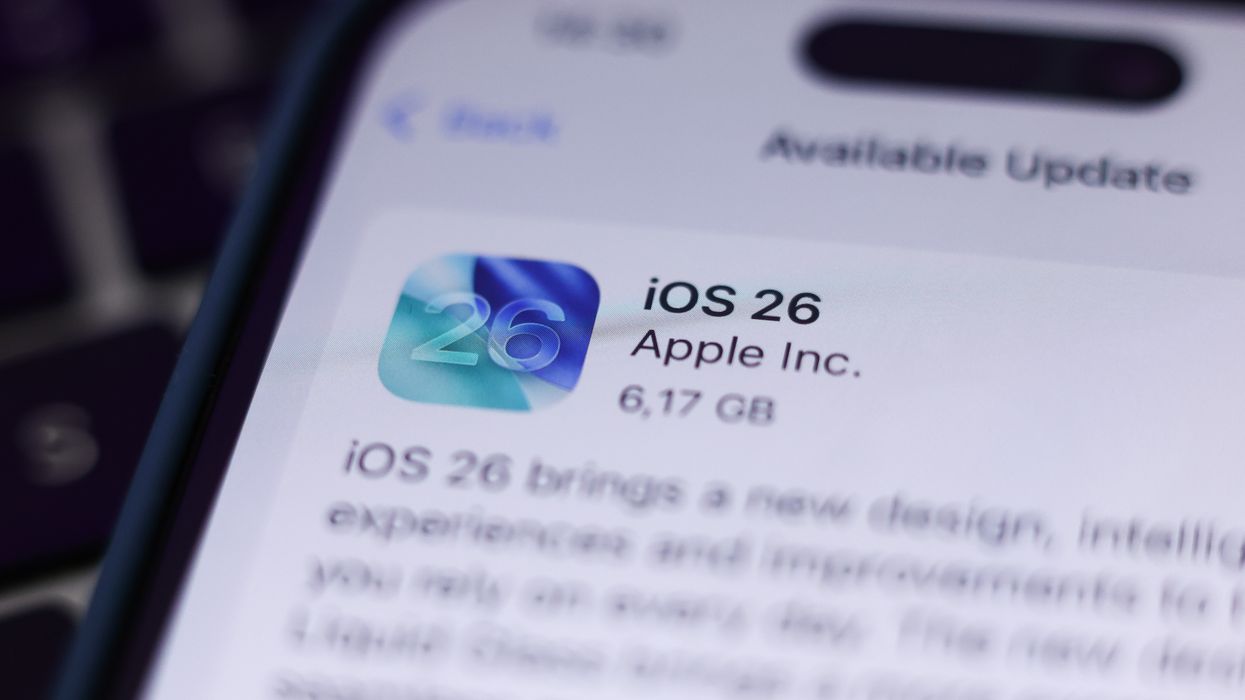
Free software features introduced with iOS 26, the latest operating system update for iPhone owners worldwide, remain unavailable in Europe due to restrictions imposed by the Digital Markets Act (DMA)
| GETTY IMAGES
Devices sold in European countries continue to 'fall further behind' the rest of the world, Apple warns
Don't Miss
Most Read
Apple has intensified its dispute with European Union lawmakers, urging them to scrap the Digital Markets Act (DMA) to avoid delays to new software and hardware launches from the Californian firm. It comes a few days after Apple executive Greg Joswiak warned the UK Government could follow in Europe's footsteps.
In a strongly-worded statement published this morning, Apple has lashed out at the Digital Markets Act, warning that the legislation is harming iPhone users across the continent. The technology company has already been forced to withhold capabilities from European countries, including iPhone Mirroring and its Live Translation feature on AirPods, due to concerns about mandatory data-sharing requirements compromising users' privacy.
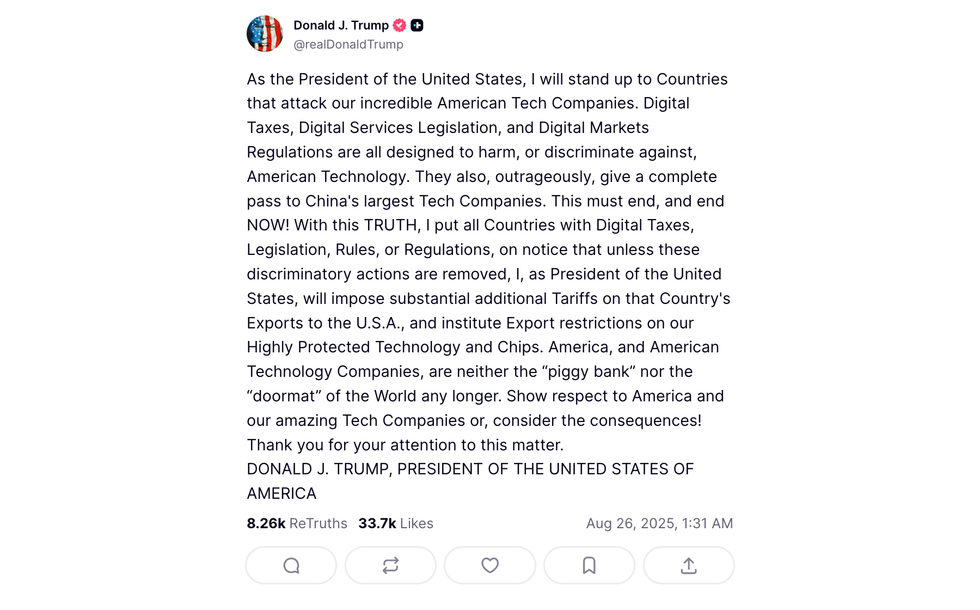 US President Donald J Trump has spoken out against nations that pass regulatory measures "designed to harm, or discriminate against, American Technology" | TRUTH SOCIAL
US President Donald J Trump has spoken out against nations that pass regulatory measures "designed to harm, or discriminate against, American Technology" | TRUTH SOCIAL Live Translation relies on the microphones built into AirPods to listen to a face-to-face conversation and translate everything in real-time using on-device Apple Intelligence models. Under the Digital Markets Act, Apple would be forced to open up this functionality to third-party headphones or software developers.
Clearly, there are inherent risks when enabling third parties to access a live feed of your conversations.
Apple doesn't have access to the contents of these conversations, since everything is processed on-device, which means it'll even work without an internet connection. Given that privacy is such a selling point for Apple — let's not forget, the iPhone maker recently took on the UK Government over its demand (and won) over its demand to build a "back door" for law enforcement to check messages and other data — it's really irked.
Live Translation should launch in Europe at some point, but it'll take some time to complete the "additional engineering work" to ensure conversations "won’t be exposed to other companies or developers," Apple explains. Under the rules enforced by European Union lawmakers, Apple isn't allowed to roll out the feature today, with the promise of future compatibility with other devices.
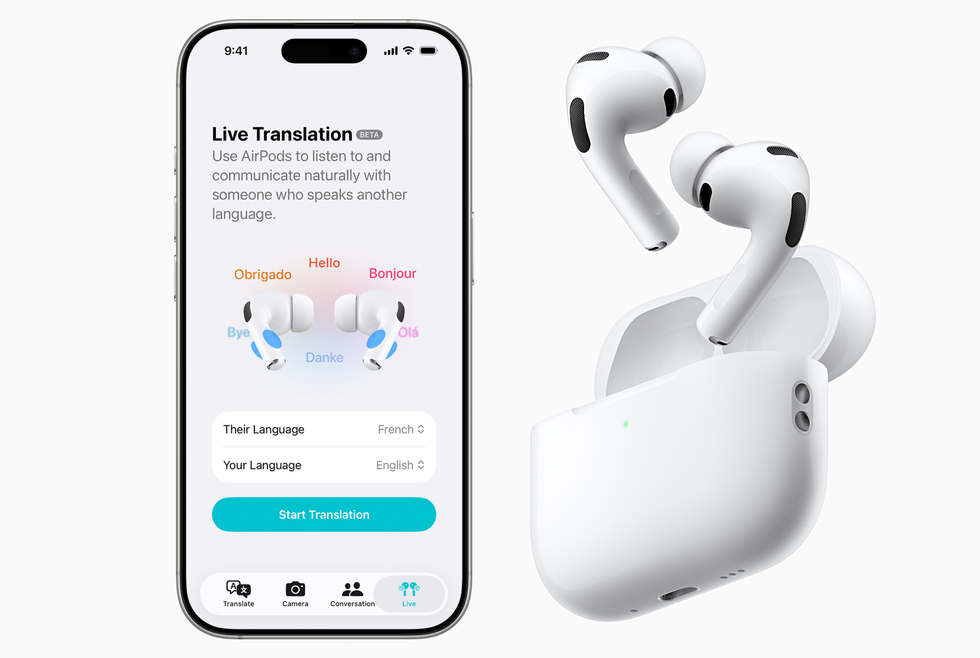
Live Translation, which translates a live audio feed from the microphone built into AirPods Pro in real-time, is not currently accessible to anyone living in mainland Europe
|APPLE PRESS OFFICE | GB NEWS
It's far from the only feature available to device owners in the UK that remains in limbo for European neighbours.
Apple stressed the rules devised by the European Commission, which came into force last year, fail to deliver the promised benefits of increased competition and consumer choice. Rather than fostering homegrown competition to US technology behemoths, the DMA is producing different experiences for European users, Apple contends.
Apple argues that when software features are withheld or unavailable, EU users are denied access to the same innovations available globally, resulting in their devices lagging behind international counterparts. It warned that European users could miss out on future product launches.
LATEST DEVELOPMENTS
- iPhone Air review
- iOS 26 ruining your battery life? Apple just revealed why
- Microsoft admits millions of PCs will be at 'risk of malware' in 30 days
- Record numbers download VPNs in wake of Online Safety Act
- AirPods Pro 3 review
The first-generation Apple Watch, which launched a decade ago, would be unlikely to pass muster with the Digital Markets Act. Over the years, Apple engineers have worked to allow third-party developers to access more of the features included in the fitness-focused wearable, but that wasn't the case at launch.
The firm also claims the legislation is diminishing product differentiation by compelling Apple to develop features for rival devices. According to the company, requirements for app marketplace changes are causing iOS to begin to mimic Android, which it argues diminishes choices for shoppers rather than expanding it.
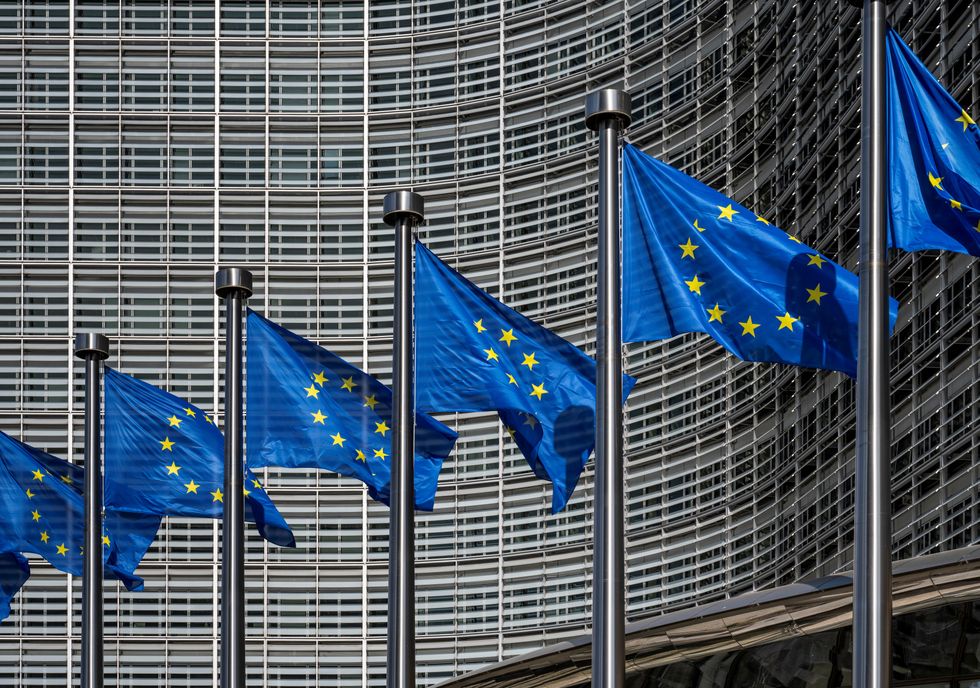
Earlier this month, European lawmakers rejected Apple's bid to scrap most of the EU order that required it to make its iPhone work with other devices
| GETTY IMAGESThat decision has exposed iPhone owners to new risks, it argues.
For example, pornography apps are available on iPhone from these alternative marketplaces — something that Apple has historically banned from its App Store because of the risks to younger users. "The DMA has also brought gambling apps to iPhone in regions where they are prohibited by law," it adds.
"By forcing Apple to build features and technologies for non-Apple products, the DMA is making the options available to European consumers more similar. For instance, the changes to app marketplaces are making iOS look more like Android — and that reduces choice," the technology company, worth an estimated $3.6tn, stated.
Apple is one of six so-called "gatekeepers" spotlighted by the European Commission. The others are Amazon, Google parent company Alphabet, TikTok owner ByteDance, Microsoft, and Meta, which owns Facebook and WhatsApp — the most popular messaging service on the planet.
At the time of writing, the European Commission has opened five investigations against Apple, more than all of the other gatekeepers combined. This is despite the fact that Samsung is the market-leader when it comes to smartphone sales in Europe, not Apple.
Apple's Senior Vice President of Worldwide Marketing, Greg Joswiak, expressed frustration in an exclusive chat with GB News, stating: "We've got millions of our European customers who are pretty frustrated about it. I don't blame them - I'm frustrated too."
Speaking from Apple Park headquarters in California earlier this month, Mr. Joswiak criticised what he termed "bureaucrats in Brussels" for blocking innovative features. He explained that cutting-edge capabilities have been "delayed, watered down" or completely prevented by EU regulations.
The marketing boss, known internally as "Joz", emphasised that the company takes pride in creating products that are "simple to use and safe, secure and private".
"Governments are attempting to redesign our products," Mr Joswiak told us, highlighting the fundamental conflict between Apple's integrated approach and new EU mandates. Apple warned that, whilst no hardware has been delayed in Europe so far, it cannot completely exclude the possibility as regulations become more stringent.
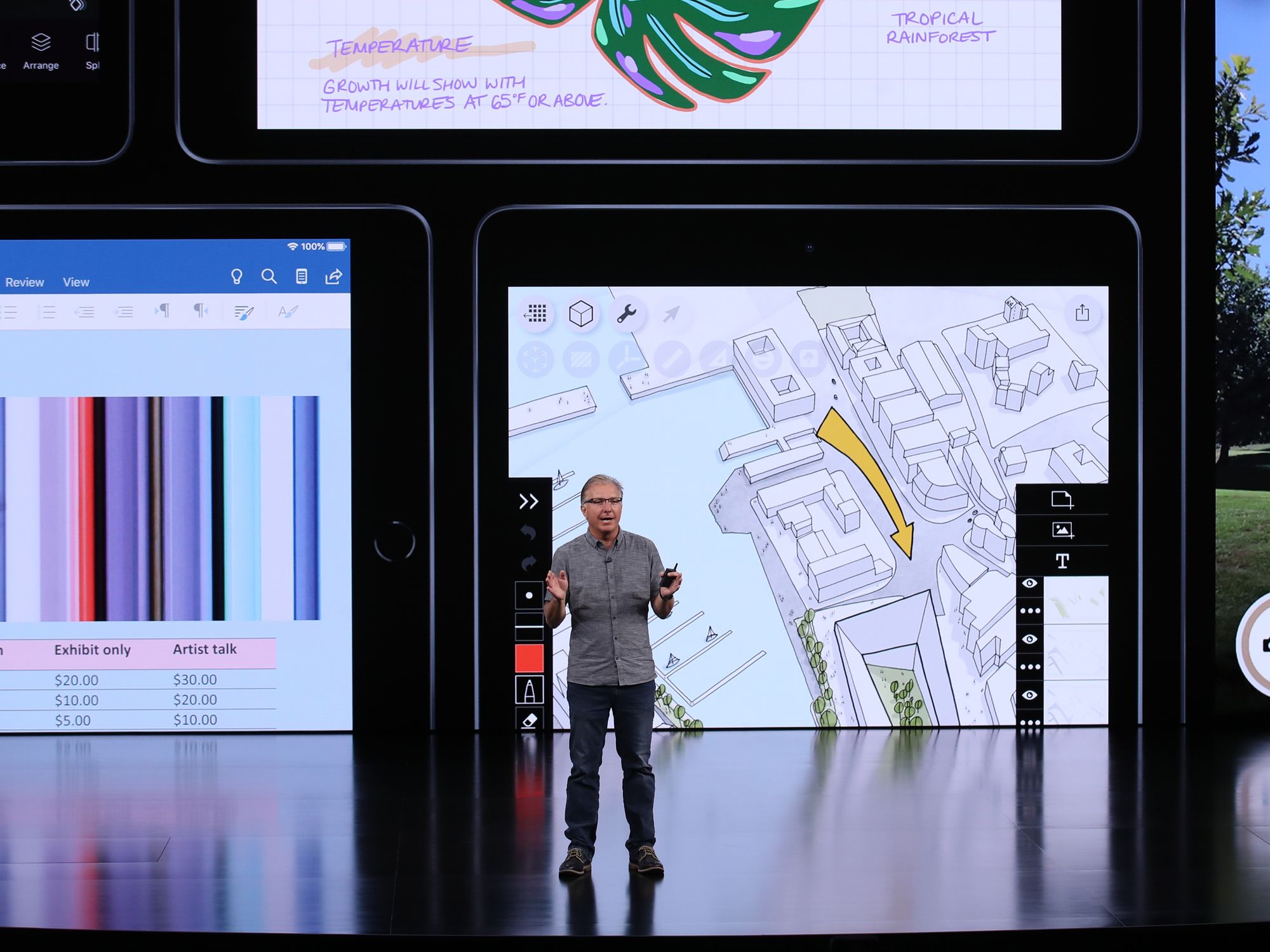
Greg "Joz" Joswiak, who has served as Apple Senior Vice President of Worldwide Marketing since 2020, pictured on-stage during a launch event for the Californian technology company
| GETTY IMAGESThe technology giant has already received substantial fines under the DMA, including a €500 million penalty earlier this year. Apple maintains that the legislation unfairly targets its integrated ecosystem whilst allowing competitors to operate without similar constraints, undermining the stated objective of promoting competition.
It concludes: "Despite our concerns with the DMA, teams across Apple are spending thousands of hours to bring new features to the European Union while meeting the law’s requirements. But it’s become clear that we can’t solve every problem the DMA creates.
"That’s why we’re urging regulators to take a closer look at how the law is affecting the EU citizens who use Apple products every day. We believe our users in Europe deserve the best experience on our technology, at the same standard we provide in the rest of the world — and that’s what we’ll keep fighting to deliver."
Our Standards: The GB News Editorial Charter
More From GB News










